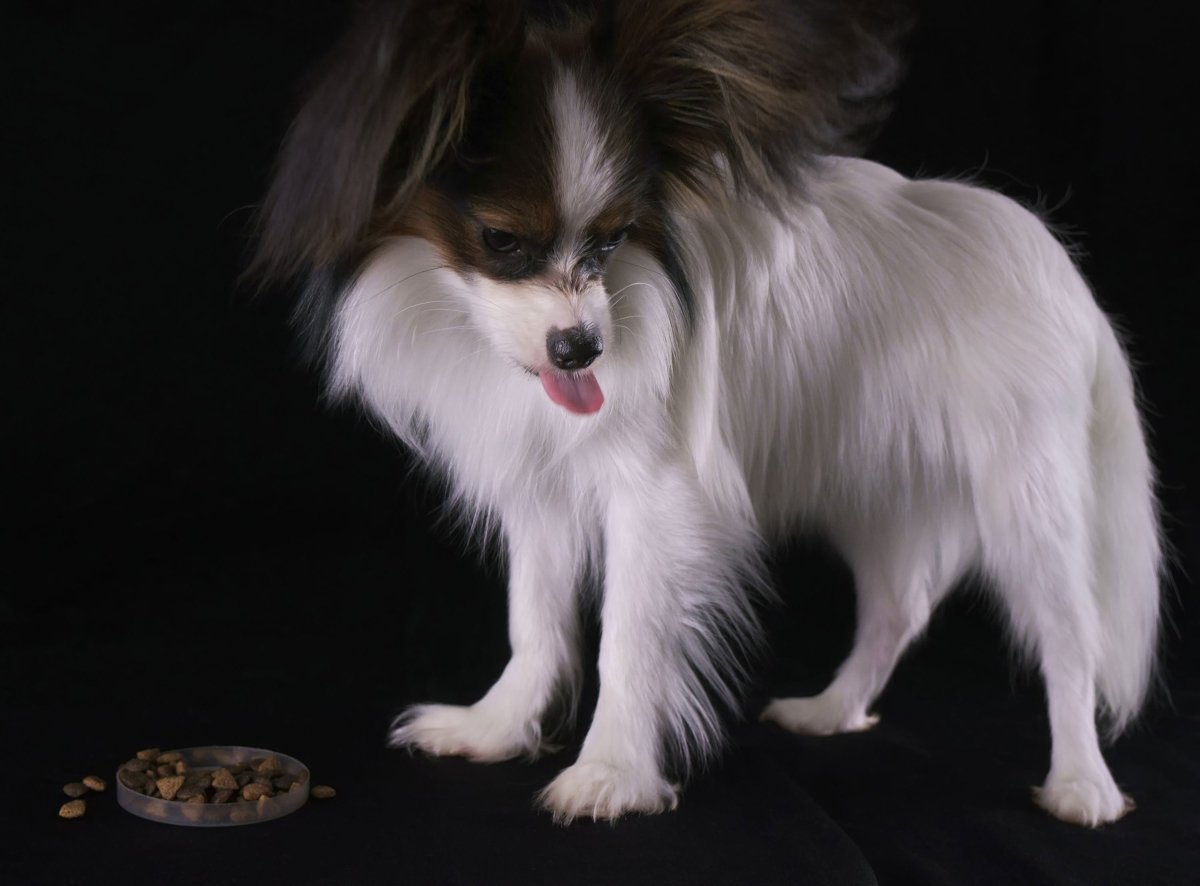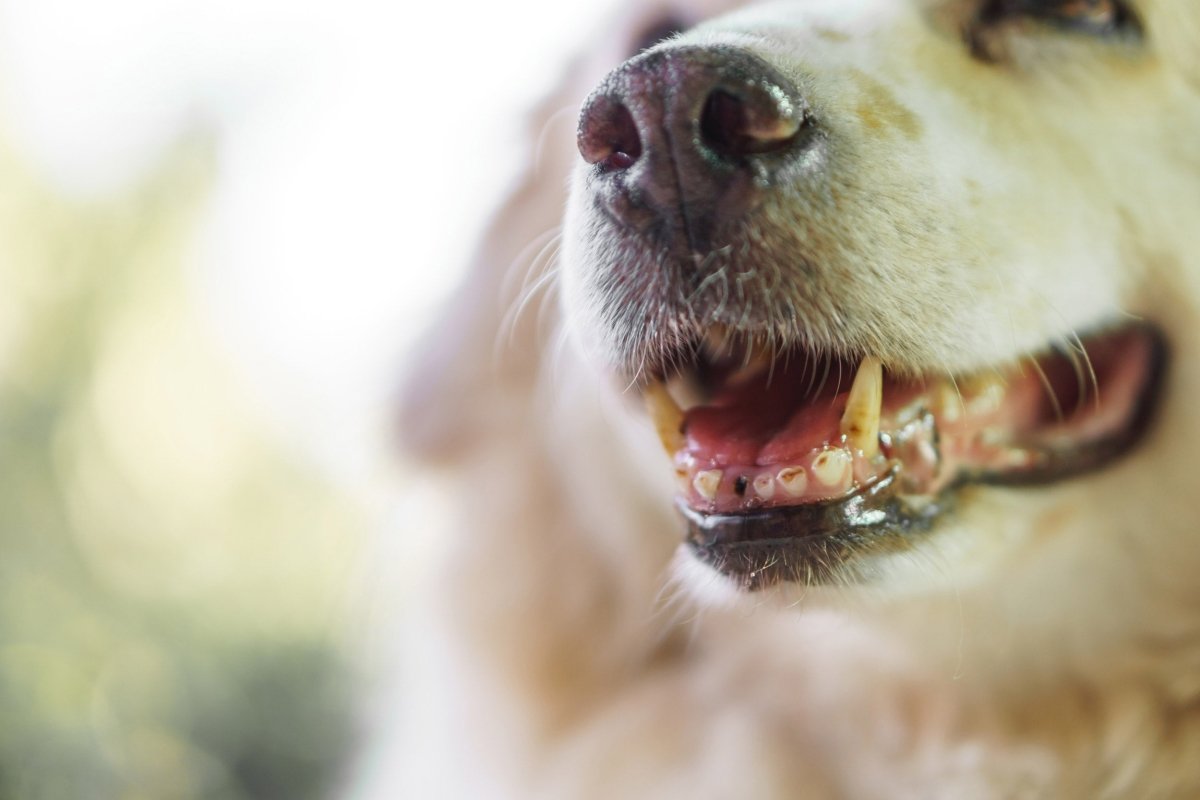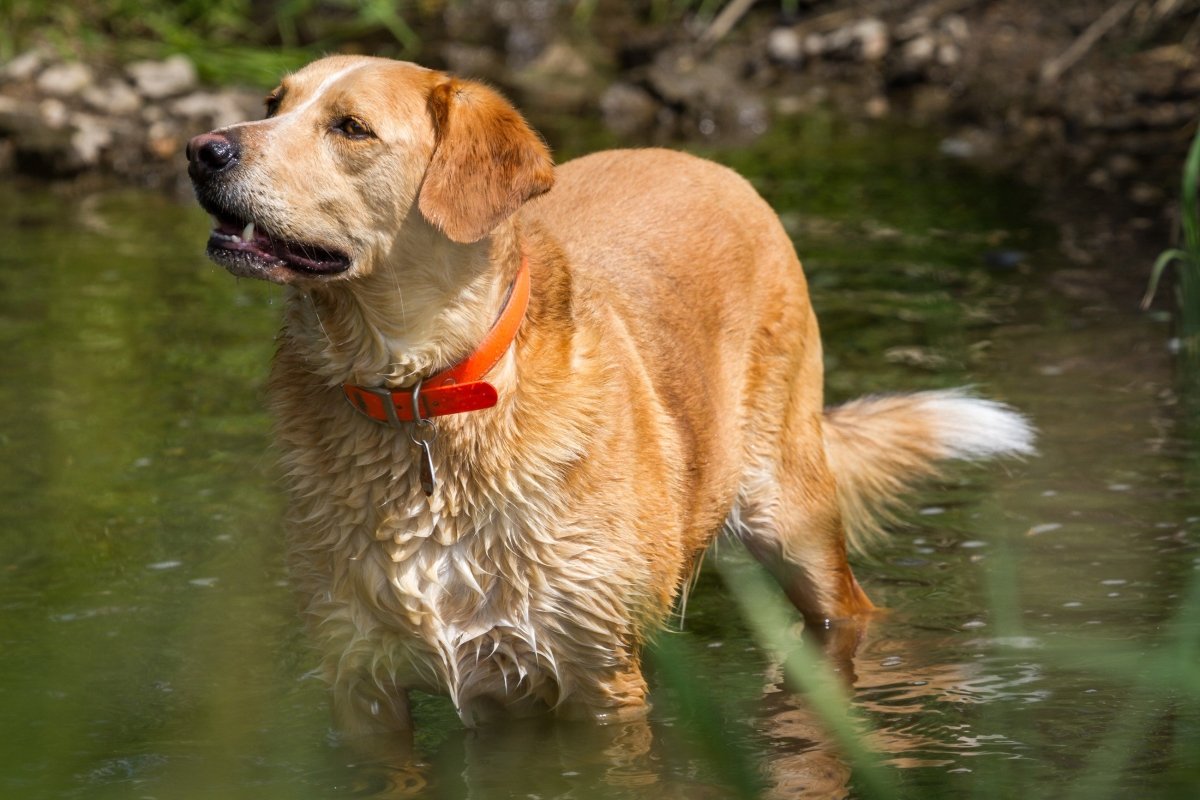Is your dog not eating and suddenly refusing to eat? Then the alarm bells go off for most dog owners. However, the causes are usually harmless and no matter what exactly is behind it, the first thing to do, as always, is to stay calm. Your dog won't eat, but he won't be harmed if he misses a meal or two.
Even adult, healthy dogs can manage without food for more than 3 weeks, although you should of course become aware and active beforehand. As most dogs are real "eating machines", there is usually a reason why your dog is no longer eating. In this article, we at AniForte would like to tell you the most common reasons that lead to a lack of appetite in our furry friends. You can also find out what you can do if your dog is not hungry and how to recognize a possible illness as the cause of food refusal.
Dog not eating? Possible harmless causes
Your dog is not eating and you are worried. However, the reasons can often be harmless. Depending on their character, it may be that your four-legged friend is simply already full or still full because it hasn't been very long since their last meal. In some cases, however, age, certain hormonal phases or a constant change of food can also cause your dog not to eat. As with us humans, most dogs will still eat "something sweet", you should simply try giving your furry friend tasty snacks for dogs - nothing sweet, but healthy and suitable for dogs, of course.
Our AniForte snacks with black cumin or our protein-rich, 100% natural dried fish are particularly popular. If your dog refuses even his favorite snack, you should continue to observe his behavior closely. In most cases, pet owners themselves are best placed to notice when it's time to go to the vet. If your dog is not eating, but apart from the refusal to eat he is still doing well, then it is very likely that one of the following harmless causes is behind it.
- Dog won't eat: picky from one day to the next
It can actually happen that your dog doesn't eat from one moment to the next. There are many reasons for this: Has he possibly been given food from outside that he liked better or have you tested a food sample that your dog destroyed in no time at all? Your darling probably wants to test your limits and your dog won't eat anything until he gets something better. Your dog won't eat? That could be one of the reasons.
Of course, the key here is to remain consistent. As already mentioned, your healthy, adult dog can survive up to 25 days without food - he should of course continue to drink enough water. And even if you certainly won't keep your dog waiting that long, 2 to 3 days without food won't do any harm; your dog will certainly love to eat his old food again after just 24 hours.
- Dog won't eat: puberty or old age lead to food refusal
It is also harmless but quite common for your dog to have no appetite during hormonal changes. During puberty, i.e. at the age of six months to a year and a half, our furry friends are often out of control - whether this disobedience manifests itself on walks or when eating varies greatly. Of course, you should also remain consistent here if you are already using healthy and natural dog food. This is the only way your dog will learn that you are the "alpha dog". Is your dog not eating? This may be one of the reasons.
During heat, both the affected bitches and the males around them are often less hungry. This is no cause for concern, as this short period is limited and accompanied by other typical behaviors. It is also possible that your senior dog is not hungry. The reasons for this are a lower energy requirement, sluggishness and a diminished sense of smell, which causes a lack of appetite. To keep your dog well fed in old age, you should switch to healthy food and supplements for senior dogs that can be easily chewed and digested. Is your dog not eating? This may be one of the reasons.
- Dog not eating: constant food changes or the wrong food
While variety and versatility are the be-all and end-all in human nutrition, your furry friend needs consistency in his diet. If your dog is not eating, you should think about whether you have been changing food types too often or too quickly recently. This often leads to stomach problems such as abdominal pain, diarrhea and loss of appetite in dogs. Does your dog have no appetite? Then you should change his food slowly in future and only for good reasons. Is your dog not eating? This could be one of the reasons.
Reasons could include a general intolerance to certain ingredients, a switch between food for junior dogs and adult dogs or a change due to artificial and unhealthy ingredients such as sugar, preservatives etc. To do this, small amounts of the previous food are replaced with the new variety on a weekly basis - this applies to both dry food for dogs and wet food for dogs.
Dog not eating: When to see the vet?
Your dog is not eating: In addition to harmless causes, this can also be due to illness. As our four-legged friends often don't show pain and discomfort directly, refusing to eat is often one of the first signs that something might be wrong with your dog. In particular, if he also refuses treats and other accompanying symptoms such as sluggishness, exhaustion or confusion occur, your dog makes pain sounds or reacts unusually hectically, you should visit the vet.
We would also like to explain below how you can recognize that there is something more serious behind it when you notice that your dog is not eating and which diseases could be the trigger for this behaviour.
- Dog not eating: loss of appetite due to pain, injuries and changing teeth
Is your dog not eating? This is not necessarily due to a lack of appetite. It may be that your dog is in pain due to an injury to the mouth or changing teeth as a puppy. The latter is nothing to worry about and can be helped by cold or our popular 5cm dental care ball with the Denta-Snack to support tooth eruption.
Injuries to the mouth can quickly occur when playing with other dogs or through accidents. Whether visible or not, sufficient water should be given to rinse out any wounds and prevent inflammation. If your dog does not eat for more than a day because he is in pain, he should of course be taken to the vet, who will examine his mouth and teeth professionally and can treat any injuries accordingly. Your dog is not eating? This could be one of the reasons.
- Dog not eating: Mental stress or dog not hungry?
Where can you eat better? While running, in the middle of an airport concourse with thousands of people and airplane turbines making noise or on a quiet Sunday in a relaxed atmosphere at your dining room table at home? If your dog won't eat, it could actually be due to psychological stress, just like with us humans, or because your dog simply feels uncomfortable at his eating place, for example. Your dog is not eating? This could be one of the reasons.
Find out what is bothering your dog: Is he always being disturbed or touched by your children or other family members or even animals while he is eating? Do you only give him a very short time to finish his bowl before you take it away, or is the bowl at a height that your furry friend can't easily reach? All these triggers could be the reason why your dog doesn't seem to have an appetite. Dogs whose past you don't know could also associate eating with negative things and therefore leave their bowl untouched.
- Dog won't eat: illnesses that cause dogs to refuse to eat
If everything else is ruled out or your dog shows accompanying symptoms such as diarrhea, fever, vomiting, pain or sluggishness in addition to refusing to eat, or you are simply unsure, he should be taken to the vet as soon as possible - especially if he refuses to eat as well as his water. If your dog is not eating, this can be a sign of problems with the gastrointestinal tract, but can also indicate liver disease or renal insufficiency. Poisoning, a parasitic infestation or even a neurological disease are also possible. As you can see, there are many different causes and reasons why your dog has no appetite. So if you are unsure, always visit the vet and make sure you feed your dog high-quality, natural food, such as the wide variety available from AniForte.
Do you have any questions about "Dog not eating"? Please feel free to contact us.




